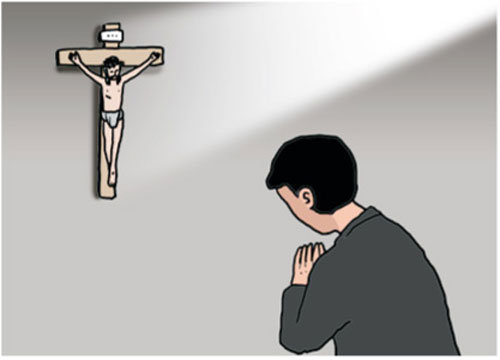Life of monks
Life of monks
Posted November. 29, 2021 07:23,
Updated November. 29, 2021 07:23


Right after graduating from high school, I made up my mind to join the Passionists. As per the spirit of the Passionist Order, we fasted, avoided meat and restrained ourselves all the time. Just like other friends of our age out there, we felt like hanging out, getting up late and being a couch potato in front of the TV. However, almost nothing was allowed to be part of our life. Although those before us at a monastery deep in the forests described it as heaven, I had a difficulty staying fine in there.
Several years later, I left there. By chance, it asked me to check translations of the Rule of the monastery more than 20 years later from then. Comparing and studying various language versions of the Rule in Latin, Italian, English and Korean, I realized how reckless the decision that I made as a young boy was to walk into a monastery with things hard on me.
As a saying goes, the ascetic community requires you to follow stringent rules and” disciplines. However, as strangers from all different regions get together to live in a restrained place, they come to realize that monks and sisters around them give them a hard time even though they try to imply that they are just like brothers and sisters by blood. This may explain where an adage came from describing that no one sheds tears even when someone dies in the monastery.
Considering that even those guided by the same end goal may easily lose generosity and warmth, we should look back at how we do. In such an unprecedented crisis, we all get tired, nervous and merciless. It takes a sharing of burdens for us to feel freer from the dark and heavy sides. Two hearts bound tightly may feel better than one. If you insist that loving someone else is a hard job to do, let me ask if filling yourself with hatred and rage is an easy job for you.
Headline News
- Joint investigation headquarters asks Yoon to appear at the investigation office
- KDIC colonel: Cable ties and hoods to control NEC staff were prepared
- Results of real estate development diverged by accessibility to Gangnam
- New budget proposal reflecting Trump’s demand rejected
- Son Heung-min scores winning corner kick







